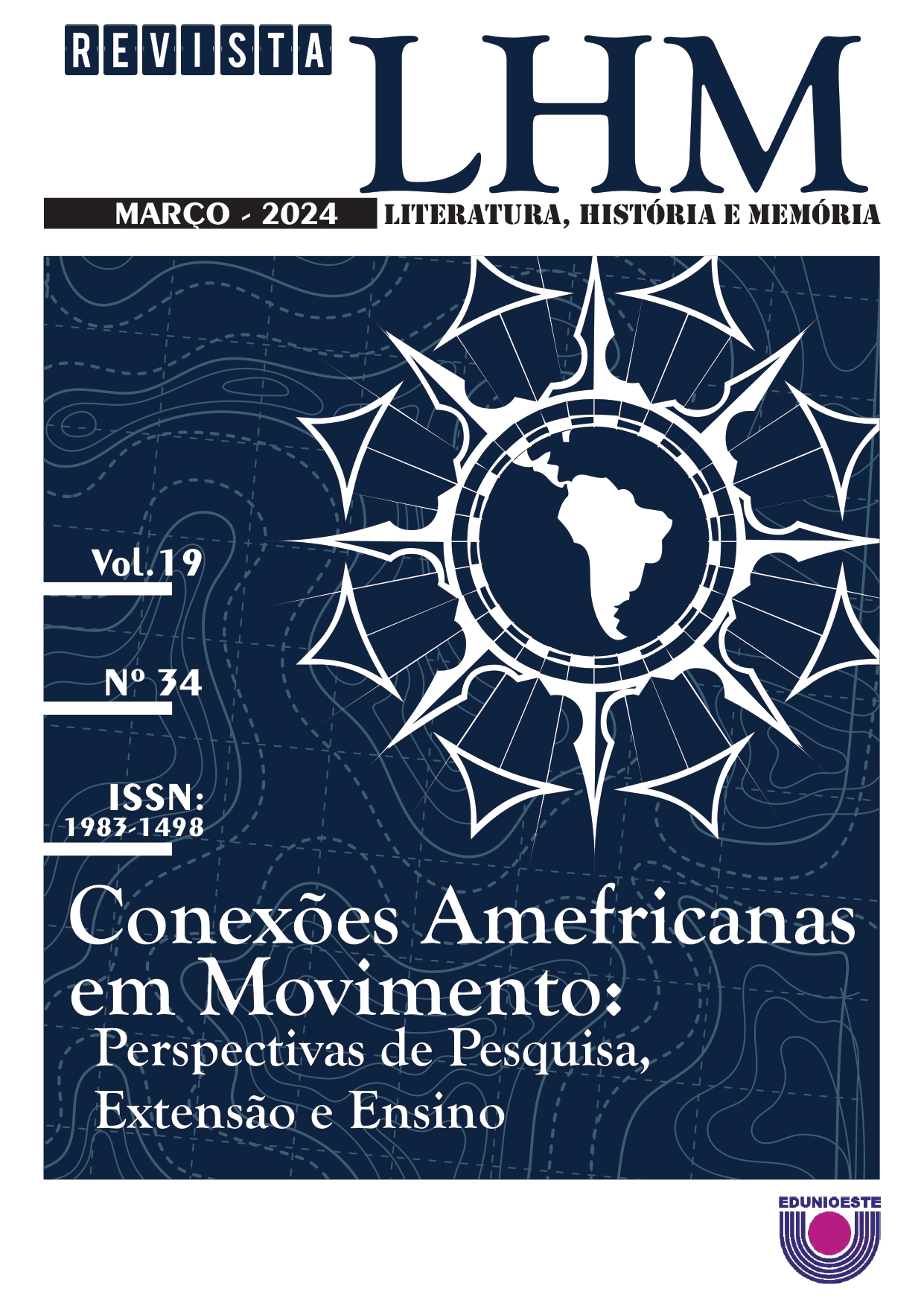Sobre Memórias Individuais e Coletivas Espanholas e Argentinas
Mulheres em Aldecoa e Leal
DOI:
https://doi.org/10.48075/rlhm.v19i34.30813Resumo
O presente artigo insere-se no campo de estudo das relações entre literatura, história e memórias coletiva e individual. propõe-se o estudo da representação feminina republicana e das relações entre mulheres nos romances Historia de una maestra (1990), Mujeres de negro (1994), La Fuerza del destino (1997), da escritora Josefina Aldecoa, e Mulheres que mordem (2015) de Beatriz Leal, obras da literatura espanhola e hispano-americana que tematizam a Guerra Civil Espanhola, a Segunda Guerra Mundial e o período ditatorial tanto na Espanha quanto na Argentina, a partir de um protagonismo feminino. O Corpus literário é abordado com base em reflexões teóricas que partem do conceito de memória; trata-se de pensar como as rememorações das personagens surgem na fratura do discurso histórico e como influenciam no transcorrer dos romances. Assim, pretende-se refletir de forma crítica e analítica sobre tais narrativas, junto de argumentações embasadas em autores que trabalham nos campos, em confluência, da memória e da história, tais como Le Goff (2003), Halbwachs (1990), dentre outros. O trabalho possui o intuito de contribuir para as discussões sobre a memória coletiva e individual e a resistência feminina em contextos de opressão social espanhóis e argentinos, em especial durante o contexto da guerra e pós-guerra.
Palavras-chave: Memória; Representação feminine; História.
Downloads
Publicado
Como Citar
Edição
Seção
Licença

Este trabalho está licenciado sob uma licença Creative Commons Attribution-NonCommercial-ShareAlike 4.0 International License.
Aviso de Direito Autoral Creative Commons
Política para Periódicos de Acesso Livre
Autores que publicam nesta revista concordam com os seguintes termos:
1. Autores mantém os direitos autorais e concedem à revista o direito de primeira publicação, com o trabalho simultaneamente licenciado sob a Licença Creative Commons Attribution que permite o compartilhamento do trabalho com reconhecimento da autoria e publicação inicial nesta revista.2. Autores têm autorização para assumir contratos adicionais separadamente, para distribuição não-exclusiva da versão do trabalho publicada nesta revista (ex.: publicar em repositório institucional ou como capítulo de livro), com reconhecimento de autoria e publicação inicial nesta revista.
3. Autores têm permissão e são estimulados a publicar e distribuir seu trabalho online (ex.: em repositórios institucionais ou na sua página pessoal) a qualquer ponto antes ou durante o processo editorial, já que isso pode gerar alterações produtivas, bem como aumentar o impacto e a citação do trabalho publicado (Veja O Efeito do Acesso Livre).
Licença Creative Commons
Esta obra está licenciada com uma Licença Creative Commons Atribuição-NãoComercial-CompartilhaIgual 4.0 Internacional, o que permite compartilhar, copiar, distribuir, exibir, reproduzir, a totalidade ou partes desde que não tenha objetivo comercial e sejam citados os autores e a fonte.


